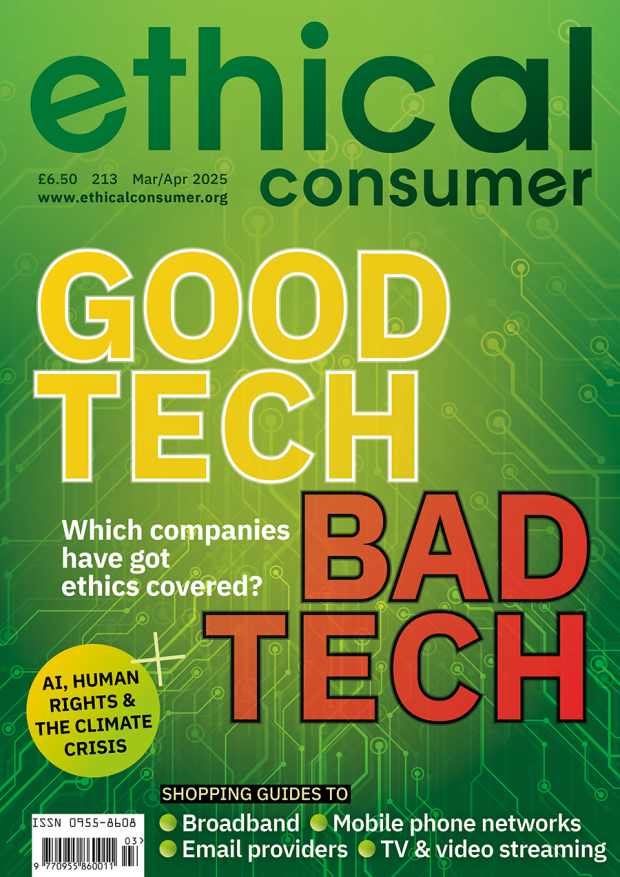Finding an ethical and green email provider
Whether you’re looking to switch to a more ethical provider, uncover the hidden costs of free email, or support companies with strong ethical values, this guide will help you navigate the complex world of email ethics with confidence.
Email is an essential part of daily life for many of us, but how much do we know about the practices behind the platforms we use? We evaluate a range of companies with our brand-new research into digital privacy, alongside tax transparency, environmental policy, and company ethos.
Google's Gmail accounts for over a quarter of global users, making their practices especially significant. But its Apple iCloud that dominates the email market, even though it is limited to those with Apple devices. Apple has over 50% of the global email market, reflecting its vast customer base and widespread usage.
Which email providers are in the guide?
As well as the tech giants like Apple, Google and Microsoft (Outlook), we highlight a range of privacy-focused alternatives: Kolab Now, Mailbox, Posteo, Proton Mail, Runbox, and Tuta (formerly Tutanota), as well as the not-for-profit GreenNet, and the co-operatively managed mail.coop which has taken over Your Coop customers.
Email is also available to customers of the broadband providers TalkTalk and Green ISP, which are reviewed in our broadband guide.
With ratings ranging from below 10 (out of 100) to over 80, there is scope to find a more ethical greener email provider.






